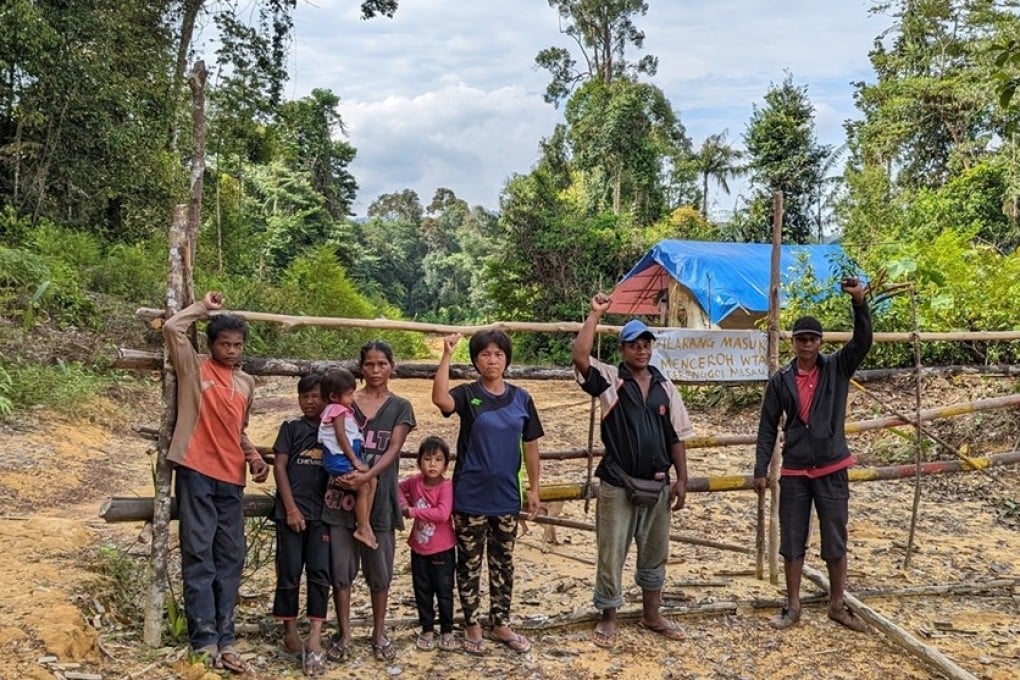Malaysia’s indigenous Orang Asli call for end to logging amid fears for endangered tigers
- The Pahang government has leased a tract of forest to private company YP Olio, which plans to turn the site into an oil palm plantation
- Logging has pushed tigers from their natural habitats and prompted indigenous Orang Asli villagers in Pahang to build a blockade against the loggers

For 16 months, indigenous Orang Asli villagers of Kampung Mesau in Malaysia have been living at a fork in a logging road. In the Chini-Bera forests in Pahang, they have built a wooden blockade to stop loggers from entering the thick forests north of the fork.
South of the fork, however, are shrubs and silt as far as the eyes can see. Loggers have cleared the forests there. There are no monkeys to hunt, wood to collect, or herbs to gather. Locals say it is open and plain, and not fit for the Orang Asli’s traditional lifestyle.
The villagers sleep and eat by the blockade. They are defiant but wary of the dangers they face. One tiger, perhaps more, lives nearby. Residents spotted a set of paw prints on the bank of a pond near the blockade in May.
Tigers used to keep to themselves in the forests, says Omar Rani, the de facto leader of Kampung Mesau’s resistance against logging. He thinks the tigers’ prey, like deer, wild boars and monkeys are starving as forest fruit trees are cut and replaced by oil palm. Depleted forests have forced tigers to hunt closer to villages. He saw a tiger crossing a logging road there in 2021.
“The monkeys used to be fat,” says Omar’s cousin, Aminah Tan. She presses her arms to her sides. “Now they are skinny!”

Race against time
Time is running out for the forests and their dependents. The Pahang government has leased an 8,498-hectare (21,000-acre) site in the forest to private company YP Olio Sdn Bhd, which has directors from the Pahang royal family and a Thai energy conglomerate. In September, YP Olio received approval from the federal Department of Environment to turn the site into oil palm plantation.